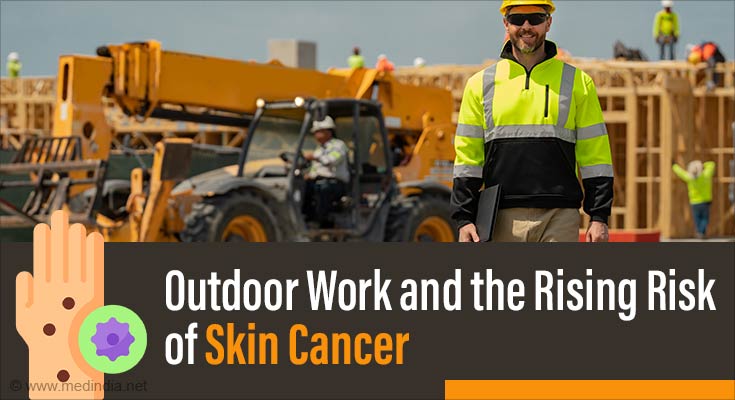“Unprotected exposure to solar ultraviolet radiation at work is a major cause of occupational skin cancer,” said Dr Tedros Adhanom Ghebreyesus, WHO Director-General. “But there are effective solutions to protect workers from the sun’s harmful rays and prevent their deadly effects.”
According to the estimates, occupational exposure to solar UV radiation is the work-related risk factor associated with the third greatest attributable burden of cancer deaths worldwide. Skin cancer mortality due to occupational exposure to sunlight doubled between 2000 and 2019, increasing by 88%, from 10,088 deaths in 2000 to 18,960 deaths in 2019.
Reducing Occupational Risk of UV Exposure
“A safe and healthy working environment is a fundamental right at work,” said Gilbert F. Houngbo, ILO Director-General. “Death caused by unprotected exposure to solar ultraviolet radiation while working is largely preventable through cost-effective measures. Governments, employers workers and their representatives must work together in a framework of well-defined rights, responsibilities and duties to reduce the occupational risk of UV exposure. This can save thousands of lives every year.”
Advertisement
The study advocates for further action to safeguard workers from harmful outdoor employment in the sun. Workers must be shielded from sun and UV radiation at work from a young working age because skin cancer develops after years, if not decades, of exposure. Governments should develop, implement, and enforce policies and regulations that protect outdoor workers from sun-induced skin cancer by providing shade, shifting working hours away from solar noon, providing education and training, and providing sunscreen and personal protective clothing (such as a broad-brimmed hat, long-sleeved shirts, and long trousers). When the UV index, a scale that rates the amount of skin-damaging ultraviolet light, reaches three or above, protective measures should be implemented.
References:
- Global, regional and national burdens of non-melanoma skin cancer attributable to occupational exposure to solar ultraviolet radiation for 183 countries, 2000-2019: A systematic analysis from the WHO/ILO Joint Estimates of the Work-related Burden of Disease and Injury
Frank Pega, Natalie C. Momen, Kai N. Streicher, Maria Leon-Roux, Subas Neupane, Mary K. Schubauer-Berigan, Joachim Schüz, Marissa Baker, Tim Driscoll, Irina Guseva Canu, Hannah M. Kiiver, Jian Li, Jamaji C. Nwanaji-Enwerem, Michelle C. Turner, Susana Viegas, Paul J. Villeneuve,
Global, regional and national burdens of non-melanoma skin cancer attributable to occupational exposure to solar ultraviolet radiation for 183 countries, 2000-2019: A systematic analysis from the WHO/ILO Joint Estimates of the Work-related Burden of Disease and Injury,
Environment International,
2023,
108226,
ISSN 0160-4120,
https:doi.org/10.1016/j.envint.2023.108226.
Source: Medindia



